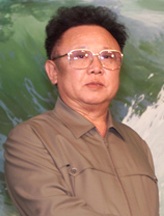RYAN LIPPERT WRITES – Published earlier this month, Paul Fischer’s “A Kim Jong-il Production” explores the late North Korean president’s zeal for film and his attempts to make his country’s film industry the best in the world. After the controversy surrounding the release of “The Interview,” Fischer’s book could not have come at a better time.
Fischer’s book focuses on the story of a kidnapping that would make any Bond villain proud. In the late 70s, Kim wanted to make his country’s film industry rival that of Hollywood. To make this happen, he kidnapped two important figures in the South Korean film industry: Shin Sang-ok and his wife Choi Eun-hee. Kim hoped that he could use Shin’s talents as a director and Choi’s acting prowess to make films that he could use as a weapon against the West.
However, Kim’s grand scheme had one major flaw. For his dream of conquering the West’s film industry to become a reality, he needed to allow Shin and Choi to travel to film festivals in other countries, where they could potentially escape captivity. Eventually, the couple did so, but they never again enjoyed the success they had before their kidnappings.
It is interesting that this book was released just a few months after Sony’s “The Interview,” a comedy in which Seth Rogen and James Franco are hired to assassinate Kim Jong-il’s son, current Supreme Leader Kim Jong-un.
Kim Jong-un was deeply offended by the movie, which has led some to believe that North Korea may have been behind the cyberattacks against Sony that took place last November.
Was Kim Jong-un trying to uphold a family tradition of asserting North Korea’s role in international entertainment? We may never know, but Kim Jong-il’s attempts to improve the North Korean film industry and his son’s efforts to control his country’s image abroad make one thing absolutely clear: uranium is not the only thing North Korea wants to enrich.

